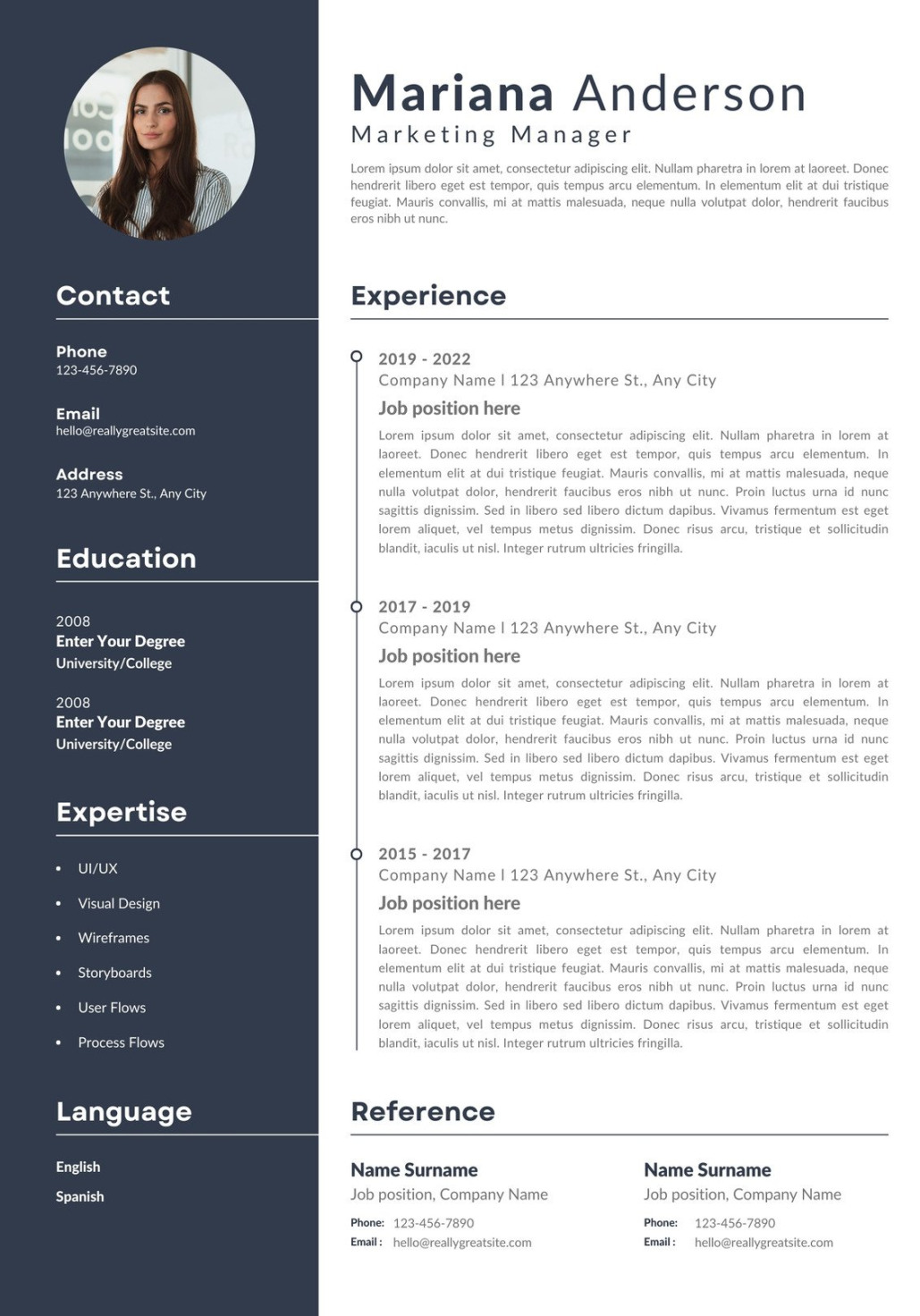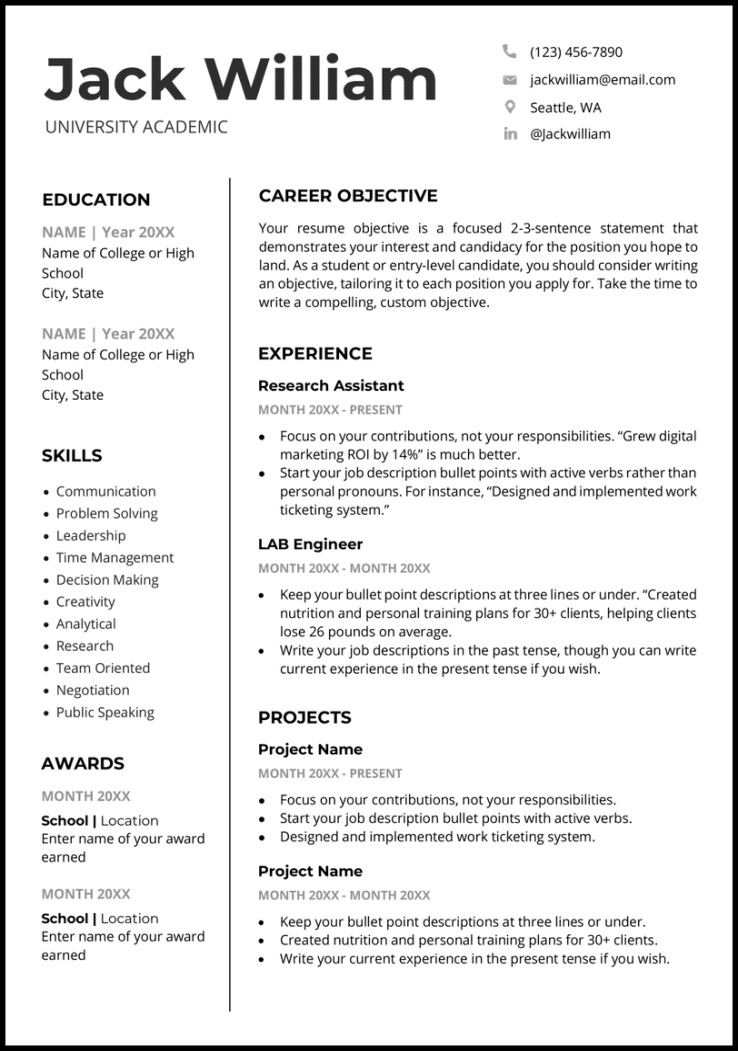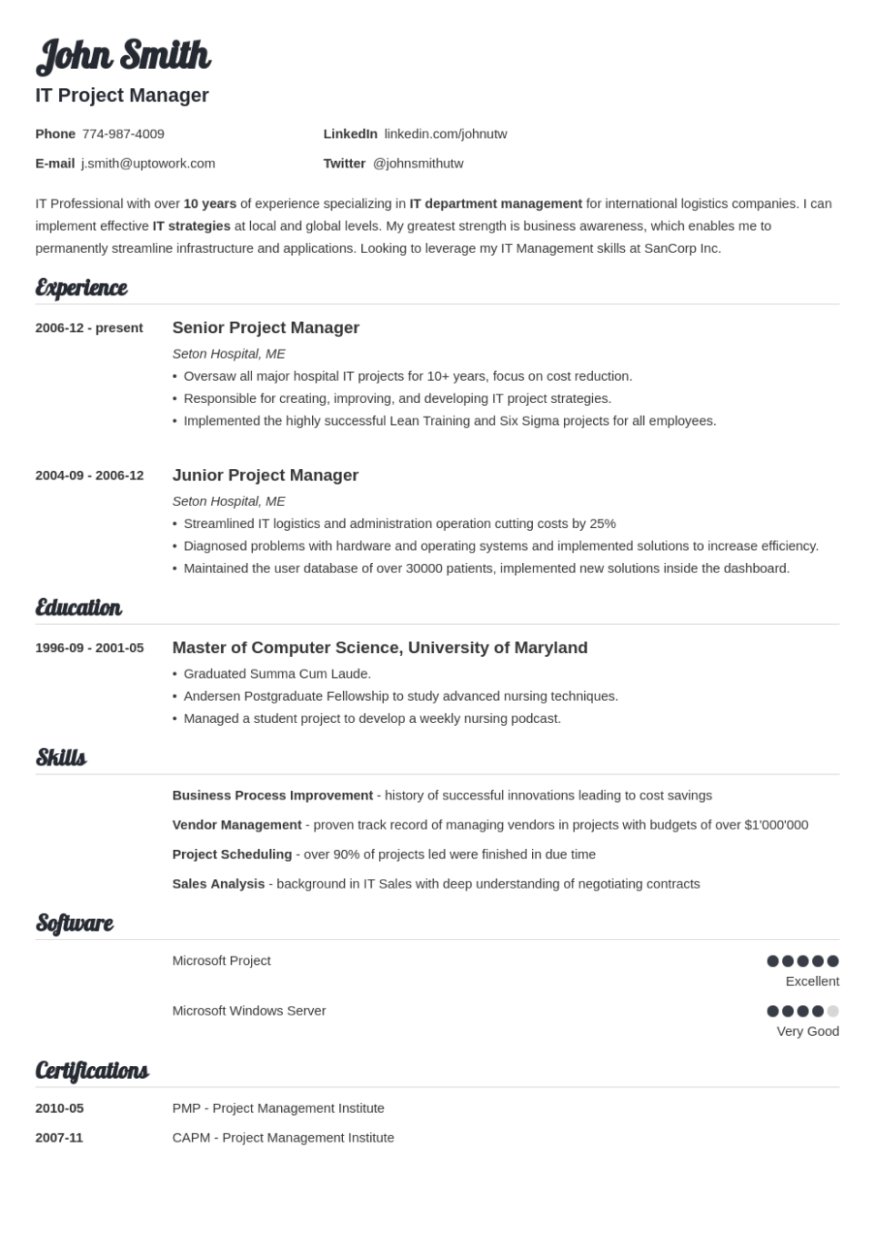Samples Of Resume Formats
What do you mean by resume formats?
Resume formats refer to the layout and structure of a resume. They play a crucial role in presenting your skills, qualifications, and experiences in an organized and professional manner. A well-designed resume format can make a significant impact on the chances of getting noticed by potential employers and securing job interviews. There are various types of resume formats available, each catering to different industries and career levels.
How to choose the right resume format?
Choosing the right resume format depends on multiple factors, including your work experience, career goals, and the industry you are targeting. Here are a few popular resume formats to consider:

1. Chronological Resume Format: This format focuses on listing your work experience in reverse chronological order, starting with the most recent position. It is ideal for individuals with a consistent work history and is widely used across different industries.
2. Functional Resume Format: This format emphasizes your skills and abilities rather than your work history. It is suitable for those with limited work experience or career gaps, as it allows you to showcase your strengths and relevant qualifications.

3. Combination Resume Format: As the name suggests, this format combines elements of both chronological and functional formats. It highlights both your skills and work experience, making it suitable for individuals with a diverse skill set and varied work history.
4. Targeted Resume Format: This format is tailored specifically for a particular job or industry. It focuses on highlighting relevant skills and experiences that align with the requirements of the targeted position.
What is known about the different resume formats?

Each resume format has its strengths and weaknesses, and understanding them can help you choose the one that best suits your needs. The chronological format is widely preferred by recruiters as it provides a clear timeline of your work history. It is effective when you have a solid career progression and want to showcase your upward growth. However, it may not be suitable if you have employment gaps or frequently changed jobs.
The functional format is useful for individuals who want to highlight their skills and qualifications. It allows you to focus on specific abilities that are relevant to the job you are applying for, regardless of your work history. However, it may not be suitable for industries where a clear work history is essential.
The combination format offers a balance between showcasing your skills and work experience. It allows you to provide a comprehensive overview of your qualifications while highlighting specific achievements in your career. However, it can be challenging to organize the information effectively in this format and may result in longer resumes.
Targeted resume formats are tailored to specific job positions and industries. They emphasize the skills and experiences that directly align with the requirements of the targeted role. This format increases the chances of catching the attention of recruiters, but it requires customization for each application.
Solution: Choosing the right resume format
To select the appropriate resume format, consider the following steps:
1. Assess your career history: Evaluate your work experience, including job roles, responsibilities, and achievements. Determine if you have a consistent work history or if there are any employment gaps.
2. Identify your strengths: Reflect on your skills, abilities, and qualifications. Determine which format will best showcase your strengths and help you stand out to potential employers.
3. Consider industry preferences: Research the common resume formats used in your target industry. Some industries may have specific expectations or requirements for resumes.
4. Tailor it for the job: Customize your resume format to match the requirements of the job you are applying for. Highlight the skills and experiences that are most relevant to the position.
5. Seek professional guidance: If you are unsure about the best resume format for your situation, consider consulting with a professional resume writer or career counselor. They can provide valuable insights and help you create a compelling resume.
Remember, the resume format is just one aspect of creating an effective resume. It is equally important to focus on the content, language, and overall presentation to make a lasting impression on potential employers.